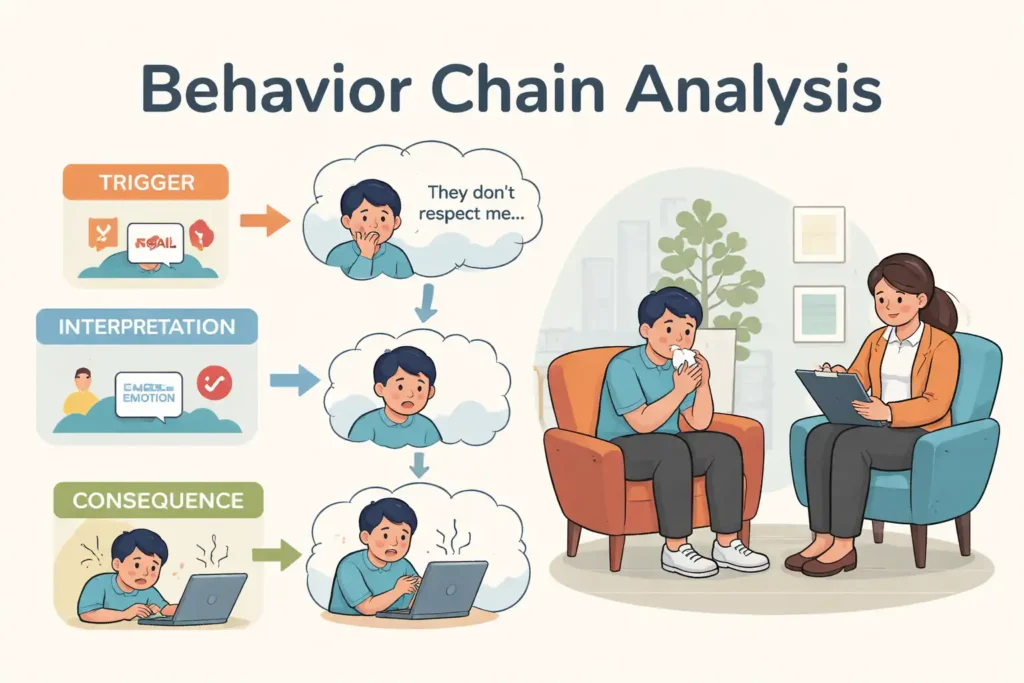The Polished Professional :12 Must-Have Behaviors That Set You Apart
The Polished Professional
The Polished Professional represents confidence, clarity, and credibility. This mindset blends strong communication, refined appearance, and consistent behavior. It helps individuals build trust, stand out in their field, and present their best self in every workplace interaction, both in person and online.

12 Behaviours of the Polished Professional
Becoming knowledgeable isn’t the only way to stand out in the modern work environment. It’s about how you conduct yourself, collaborate with others, and handle challenges. There is no quick fix for becoming a polished professional. To maximise your abilities and thinking, you must be consistent, practice, and make a conscious effort. This post will explore the 12 key behaviours of a polished professional and how developing these qualities can help you grow in your work.
1. Punctuality in Respecting Time
In the big picture, being on time seems like a bit of an inconvenience. However, it can appear that you don’t value other people’s or your own time if you routinely miss deadlines or arrive late for meetings.
Significant delays result from lateness, particularly in settings that value teamwork. Regularly arriving late puts you at risk of upsetting coworkers and harming your reputation. For instance, the entire group loses valuable time when a team meeting starts late because of an absent member. Additionally, delays can escalate, impacting the project’s schedule and the team’s ability to meet deadlines.
Adopt the practice of planning and adding in some buffer time. Being 10 to 15 minutes early shows consideration for others’ time and conveys your dependability and readiness. According to studies, 29% of employers have fired a worker for excessive lateness. This figure shows how important being on time is to your professional advancement. Being punctual is easy yet impressive.
2. Clear Communication and Speaking with Purpose
One of the most common sources of workplace frustration is poor communication. Misunderstandings and errors occur when communication is unclear, concise, or straightforward.
Productivity is also negatively impacted by poor communication. Projects wander off course, and team members become confused, and tasks may be delayed. For instance, your coworkers may not understand what is required of them if you provide unclear instructions or ambiguous email messages. This results in errors that require more effort to fix.
Use your words with purpose and clarity in emails, presentations, and informal discussions. Avoid gibberish vocabulary and ensure your message is clear enough for others to understand. Try to actively listen and pause before answering to allow yourself to process the information. According to a National Association of Colleges and Employers poll, 73% of hiring managers place a high value on communication skills.
3. Take Responsibility for Your Actions
When anything goes wrong, it’s simple to blame someone. When they make mistakes or miss deadlines, many professionals try to shift the responsibility elsewhere. But doing so damages credibility and undermines confidence in the workplace.
Confusion and dissatisfaction result when you don’t take responsibility for your actions. Others could be reluctant to collaborate with you on significant projects if they don’t believe you’ll be accountable. This lack of accountability can have a substantial impact on your professional path over time.
A Polished professional accepts accountability for their work. If something goes wrong, they own up to it, take the lesson to heart, and put a solution in place. This shows integrity and builds trust. Employees who own up to their mistakes and take aggressive measures to fix them are highly valued by leaders. According to the Centre for Creative Leadership, one of the most essential traits of strong leaders is accountability.
4. Professional Appearance in Dressing
Despite the well-known maxim, “dress for the job you want,” many professionals continue to downplay the significance of maintaining a presentable appearance. Wearing sloppy or informal clothes to work can give the impression that you don’t take your job seriously.
Although clothing may seem unimportant, how you present yourself affects how others see you. Bosses and coworkers doubt your commitment or professionalism if you look unpleasant. On the other hand, dressing well and having a professional appearance indicate that you value your career and appreciate the culture of your place of employment.
Follow the dress code at work and make sure you’re dressed appropriately. While it’s not necessary to wear a suit every day, it is imperative to dress in hygienic, well-maintained clothing appropriate for the setting in which you operate. 41% of employers believe that an employee’s clothing affects their chances of getting promoted, according to CareerBuilder.
5. Positive Attitude by Bing Optimistic
Workplaces are often high-stress environments where everyone suffers. You feel overwhelmed, particularly when things don’t go as planned.
A pessimistic outlook can spread negative vibes and lower the team’s morale if you are constantly whining or concentrating on the difficulties. If you come across as perpetually negative, people are less willing to work with you.
Even under challenging circumstances, maintain a sense of optimism. This does not imply that you should disregard issues; instead, it suggests that you keep an optimistic outlook and focus on finding answers, even under pressure. Collaboration and productivity are made easier by a hopeful outlook. Positive-minded workers are 12% more productive than their pessimistic counterparts, according to Gallup’s research.
6. Show Emotional Intelligence
In emotionally charged workplaces, tension, frustration, and disappointment may cloud judgment. Impulsive decisions and strained relationships can result from poor emotional management.
If you’re not aware of your emotions, you can worsen a problem or offend coworkers. Negative emotional outbursts damage your career and reputation. Professional performance typically depends more on emotional intelligence (EQ) than IQ. Be aware of how your emotions affect your behaviour to develop emotional intelligence. Work on empathy, self-regulation, and active listening.
7. Uphold Ethical Standards
In a competitive environment, pressure to succeed will lead to moral compromise. Breaking the rules might seem like a shortcut, but it has long-term consequences.
Unethical behaviour ruins your reputation with coworkers and supervisors, blocking career advancement or costing you a job. Integrity is fundamental to a polished professional. Be honest and ethical, even in challenging situations; taking the high path earns respect and credibility. An Ethics Resource Centre study found that companies with strong ethical cultures have reduced turnover and higher morale.
8. Adaptability
Today’s fast-paced workplaces are constantly evolving, and resistance to change may stunt company growth, team dynamics, and technological innovation.
The polished Professionals who resist change generally lag. Employers value flexible and adaptable workers. Rejecting new technologies or methods can make you seem outdated. Be open to change and find ways to learn and improve. Today’s employment market values adaptability, which the World Economic Forum calls a prerequisite for career success.
9. Time Management
With numerous tasks and deadlines, you can easily feel overwhelmed. Without time management skills, essential projects pile up, leading to stress and missed deadlines.
When tasks are poorly prioritised, you end up focusing on less important activities while neglecting critical ones. That hurts productivity and causes delays. Time mismanagement also results in burnout and job dissatisfaction.
Master time management by using tools like calendars, to-do lists, and project management apps. Prioritise your tasks based on urgency and importance. The American Management Association found that time management is a key skill for leadership success.
10. Networking

When you get caught up in day-to-day tasks and forget the importance of professional relationships, networking becomes a secondary concern. Still, it’s one of the most effective ways to advance your career.
Without a solid network, you will miss out on valuable job opportunities or collaborations. According to LinkedIn, 85% of jobs are filled through networking. In a competitive job market, having connections can give you a significant advantage.
Invest time in building and maintaining professional relationships, both inside and outside your company. Attend industry events, engage on LinkedIn, and make an effort to connect with people who can help you grow professionally.
11. Address Disagreements Constructively
Conflicts are inevitable in any workplace. How you handle them can make or break your reputation as a polished professional. When you avoid conflicts or handle them poorly, it will lead to a toxic work environment.
Unresolved conflicts can simmer, leading to resentment and poor collaboration. Effective conflict resolution is vital to maintaining a positive work environment and preserving professional relationships.
Approach conflict with a solution-oriented mindset. Be diplomatic and try to understand the other party’s point of view. According to CPP Global, 85% of employees experience some form of conflict, making conflict resolution a crucial skill.
12. Continuous Learning
The world of work is constantly changing. If you’re not actively learning and developing, you risk becoming obsolete in your role.
Employees who don’t seek continuous growth may struggle to keep up with industry changes or technological advances. This can limit career progression and job satisfaction. Commit to lifelong learning. Take online courses, attend workshops, read books, and seek feedback. The World Economic Forum highlights continuous learning as essential for a polished professional to adapt to an evolving job market.
Conclusion
To be a polished professional, you need more than just technical expertise. The 12 behaviours outlined above, punctuality, clear communication, accountability, and others, are all key components that contribute to success in the workplace. Master these traits to show your value to your team, your company, and your industry. Keep these behaviours in mind, practice them consistently, and you’ll position yourself for long-term success and respect in your professional life.
FAQS About a polished professional
What is a polished professional?
A polished professional embodies competence, courtesy, and consistency. They exhibit strong communication skills, emotional intelligence, and a professional appearance, both in-person and online. This combination fosters trust and respect in the workplace.
Why is professionalism important in the workplace?
Professionalism builds trust, enhances collaboration, and boosts productivity. It sets a standard for behaviour, ensuring a respectful and efficient work environment. A polished professional demeanour can also open doors to career advancement and leadership opportunities.
How can I improve my professional polish?
Improving your professional appearance involves dressing appropriately for your industry, maintaining good grooming habits, and being mindful of body language. Dressing for the job you want can positively influence how you’re perceived.
What role does emotional intelligence play in professionalism?
Emotional intelligence allows professionals to manage their emotions and understand others’ feelings. It aids in conflict resolution, enhances teamwork, and contributes to a positive work environment, all of which are hallmarks of a polished professional.
What role does emotional intelligence play in professionalism?
Emotional intelligence allows professionals to manage their emotions and understand others’ feelings. It aids conflict resolution, enhances teamwork, and contributes to a positive work environment, all hallmarks of a polished professional.
How can I communicate more effectively at work?
Effective communication involves active listening, clear articulation of ideas, and mindful attention to non-verbal cues. Avoiding jargon and being concise can also improve understanding and reduce misunderstandings.
What are some examples of unprofessional behaviour?
Effective communication involves active listening, clear articulation of ideas, and mindful attention to non-verbal cues. Avoiding jargon and being concise can also improve understanding and reduce misunderstandings.
What are some examples of unprofessional behaviour?
Unprofessional behaviours include tardiness, poor communication, lack of accountability, and inappropriate attire. These actions can damage relationships and hinder career progression.
How can I develop a polished professional mindset?
Developing a polished professional mindset involves adopting a growth-oriented attitude, seeking feedback, and continuously striving for self-improvement. Embracing challenges and learning from experiences contribute to personal and professional growth.
What are the benefits of being a polished professional?
Benefits include enhanced credibility, stronger professional relationships, increased job satisfaction, and better career opportunities. A polished professional is often viewed as a leader and a valuable asset to any organisation.
How does body language affect professionalism?
Positive body language, such as maintaining good posture, making eye contact, and offering a firm handshake, conveys confidence and respect. It can significantly impact how others perceive your professionalism.
Can professionalism be learned?
Yes, professionalism can be developed through practice and self-awareness. By observing role models, seeking feedback, and committing to continuous improvement, individuals can cultivate a polished professional demeanour.






